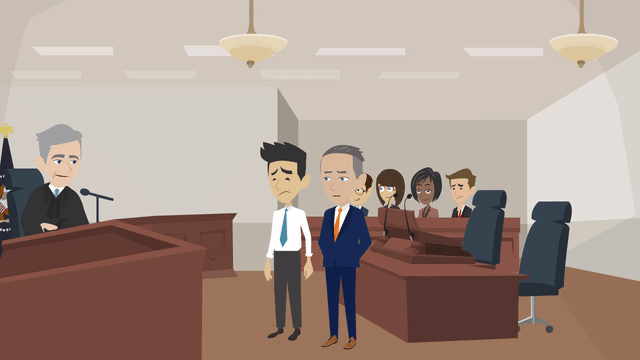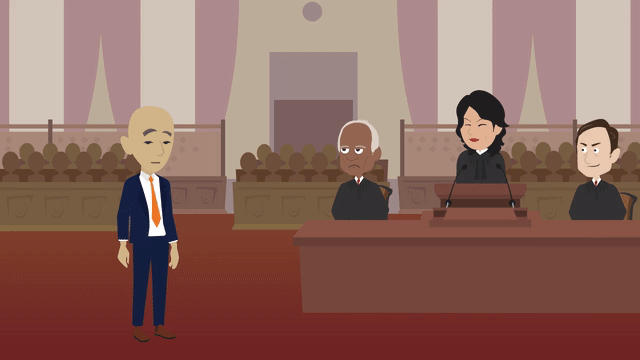Sex Crime Defense Lawyers & Attorneys
We combine years of valuable criminal defense experience with one-on-one, personal attention to provide the best possible defense and representation for you. We guide you through the criminal defense process so you understand your charges and explain your options and potential consequences.
An allegation or accusation of a sex crime is one of the most difficult things a person can experience. It is for this reason that you must hire an experienced criminal defense attorney who has defended and represented people charged with sex crimes. It takes a unique skill set to understand the type of charges related to criminal sex acts, rape, sexual misconduct, forcible touching, sex abuse and child pornography.
Within the category of Sex offenses, and the crimes of Sexual Misconduct, Rape, Criminal Sexual Act, Sexual Abuse, and Sexual Assault, there are several terms that are defined and pertain to all crimes related sex offenses. The legal definition may differ from what may be the common meaning of a word or phrase. These definitions are an integral part of any defense to a sex crime. For more information on these terms and possible questions, please see the Definitions tabs below.
Frequently Asked Questions About Sex Crimes
Our criminal defense lawyers provide answers to some important questions below.
- Course of Sexual Conduct Against A Child
- Criminal Sex Act
- Forcible Touching
- Rape
- Sex Offenses Definitions/Sex Crimes FAQ's
- Sexual Misconduct
If you are charged with or accused of Course of Sexual Conduct Against a Child, it is important to hire an experienced criminal defense lawyer who will work with you, help you understand the charges or allegations, and will defend you against these very serious accusations. It is crucial that you remain silent in the face of any allegation against you and contact a lawyer who handles sex crime charges who can guide you and advise you about how to handle this type of allegation.
Course of Sexual Conduct Against a Child in the Second Degree occurs when over a period of 3 months a person:
- Engages in 2 or more acts of sexual conduct with a child less than 11 years old; or
- Is 18 years or older and engages in 2 or more acts of sexual conduct with a child less than 13 years old.
Course of Sexual Conduct Against a Child in the Second Degree is a Class D violent felony.
- Up to 7 years in State Prison.
- Post-Release Supervision between 3 and 10 years
- Sex Offender Registration.
- 10 years of Probation.
- Fines up to $5000.
- Sex Offender surcharges/fees totaling $1425.
- Provide a DNA Sample.
- Pay Restitution.
- HIV Testing.
Course of Sexual Conduct Against a Child in the First Degree occurs when over a period of 3 months a person:
- Engages in 2 or more acts of sexual conduct, and at least 1 of the acts must include sexual intercourse, oral sexual conduct, anal sexual contact, or aggravated sexual contact, with a child less than 11 years old; or
- Is 18 years or older and engages in 2 or more acts of sexual conduct, and at least 1 of the acts must include sexual intercourse, oral sexual conduct, anal sexual contact, or aggravated sexual contact, with a child less than 13 years old.
Course of Sexual Conduct Against a Child in the First Degree is a Class B violent Felony.
- Up to 25 years in State Prison.
- Post Release Supervision from 5 to 20 years.
- Sex Offender Registration.
- Fines up to $5000.
- Sex Offender surcharges/fees totaling $1425.
- Provide a DNA Sample.
- Pay Restitution.
- HIV Testing.
To be charged with Rape, Sex Abuse, or Aggravated Sexual Abuse, or any other sexual offense your accuser would have to allege another sexual occurrence happened outside the timeframe set forth in the Course of Sexual Conduct charge. Otherwise, those charges are included within the Course of Sexual Conduct charge.
Yes. If you are convicted for the crime of Course of Sexual Conduct Against a Child, you will be required to register as a sex offender.
How long you must register as a sex offender depends on your sex offender level designation. A Level 1 offender will register for 20 years. Level 2 and 3 offenders are required to register for life.
Whether a case proceeds to trial depends on many factors. In a sex case, it is important to understand the evidence against you: including whether there is DNA evidence or other corroborating evidence, whether there are incriminating statements, whether the accuser is credible or has lied in the past. An experienced criminal defense attorney will go over the evidence with you and help you make the determination as to whether you want to enter plea bargain negotiations or take the case to trial.
If you are accused of a sexual offense such as Forcible Touching you likely have many questions and concerns about what it will mean to your future, your job, and your reputation. Forcible Touching is one of the few sex crimes that is a misdemeanor and not a felony. While still serious, the potential consequences of a misdemeanor are less severe than a felony. If you are accused of any sexual offense, including forcible touching, it is important that you immediately contact an attorney who defends individuals who are accused of sexual related offenses. It is also important that you remain silent and not speak to anyone about this allegation until you have spoken to a lawyer who defends people who are charged with forcible touching.
A person is charged with forcible touching when:
- Such person intentionally and for no legitimate purpose forcibly touches the sexual or other intimate parts of another person to:
- Degrade or abuse the other individual; or
- To gratify their own sexual desire.
- They subject someone to sexual conduct to satisfy their own sexual desire and to degrade the other individual and the contact occurs on a bus, train, or subway.
Yes. For the purposes of the crime of Forcible Touching, squeezing, grabbing, or pinching can result in criminal charges being brought against you.
Yes. Forcible Touching is a crime and is considered a class A misdemeanor.
If you plead guilty to or are convicted of Forcible Touching, you face the following penalties:
- Up to 1 year in Jail.
- Potential Sex Offender Registration.
- Up to 6 years of Probation.
- Fines up to $1000.
- If relevant, Sex Offender surcharges/fees totaling $1375.
- DNA Sample.
The answer depends on the allegations of your charge. You will be required to register as a Sex Offender if the victim is less than 18 years of age, if you have a prior sex offense conviction, had a prior Forcible Touching conviction, or a conviction for Sex Abuse in the Third Degree. If none of those apply to you, you will not be required to register as a sex offender.
Yes. New York State law mandates that any person charged with a crime must have a lawyer represent and defend them. If you cannot afford a lawyer, the Court will appoint one for you.
No. You can hire a lawyer at any time. It is always in your best interest to contact an experienced criminal defense lawyer who has handled similar cases as soon as there are any allegations against you. Your criminal defense lawyer may be able to prevent charges from being brought and can ensure that you do not incriminate yourself.
No. To be charged with Forcible Touching, you must intentionally and for no legitimate purpose touch someone inappropriately/in a sexual manner. Under this scenario, an accidental brushing would not constitute a crime.
A case does not have to go to trial unless the person accused of the crime decides they want to go to trial or a prosecutor refuses to enter plea bargain negotiations. The decision to proceed to trial must be made by the person charged with a crime. This decision should be based upon a review of the evidence and meetings with your experienced criminal defense lawyer.
Sexual intercourse means any penetration of the penis into the vagina. It is considered sexual intercourse if any penetration occurs, however slight, including very minor or negligible.
Oral sexual conduct is any contact between people involving the mouth and penis, the mouth and anus, or the mouth and vagina or vulva.
Anal sexual conduct is contact between two people involving the touching of the penis and anus.
Sexual contact is the touching of sexual or other intimate parts of a person for the purpose of gratifying sexual desire of either party. Sexual contact includes having a victim touch the person charged, or the person charged touching another individual. The touching can be under or over clothes.
Forcible compulsion means to intentionally compel by (1) use of physical force or (2) by a threat, express or implied, which places a person in fear of immediate death or physical injury to themselves or another person, or fear that they or another person will immediately be kidnapped.
In New York, lack of consent occurs when any of these facts exist or occurs:
- Not having permission for the sexual act to occur, including but not limited to, being told “no”.
- Individuals under the age of 17 are incapable of consenting to sexual intercourse.
- Forcible compulsion.
- Mentally Disabled.
- Mentally Incapacitated.
- Physically helpless.
- An inmate in jail/prison or otherwise under the care of the State who has relations with a Corrections Officer or someone in charge of their care.
Mentally disabled means a person has a mental disease or defect which does not allow them to understand their conduct.
Mentally incapacitated means a person does not have the ability to consent to a sexual act based on being involuntarily drugged.
Physically helpless means to be unconscious or not able to communicate an unwillingness to act.
A foreign object is any instrument or article which can cause injury when inserted in the vagina, urethra, penis, rectum, or anus.
Aggravated Sexual contact means an injury caused by inserting a foreign object in the vagina, urethra, penis, rectum, or anus of a child.
The Sex Offender Registration Act mandates that people convicted of Sex Offenses notify the State and local law enforcement regarding where they live, work, and internet accounts. The Sex Offender registry contains the name, age, photograph, home and work addresses, and a list of convictions that mandate the registration. Most sex offenses or sexually related sex crimes qualify for a convicted person to register under SORA.
No. The Sex Offender Registration Act only requires those convicted of a crime to register as s sex offender?
The answer depends on the classification level of the sex offender. A Level 1 (low risk of re-offense) offender is required to register for 20 years. Level 2 (medium risk of re-offense) and 3 (high risk of re-offense) offenders are required to register for life.
No. Level 1 offenders are not listed on the online directory. Level 2 and Level 3 Offenders are listed online.
Yes. You can petition to have your designation level reduced. It is best to contact an experienced criminal defense attorney who handles Sex Offenses to help with your modification petition. To be successful, treatment records, employment history, rehabilitation, and return to community activities are important.
Sex charge convictions carry mandatory fees and surcharges totaling $1,425. These are broken down as follows: $300 mandatory surcharge (unless restitution has been paid); $25 crime victim assistance fee; $50 DNA Databank fee; $50 Sex Offender Registration Act Fee; $1,000 Supplemental sex offender victim fee. These fees and surcharges are in addition to any fine you may be required to pay.
Yes. Under New York State Law, if you are convicted of a penal law misdemeanor or felony, you are required to provide a DNA sample that will be added to the DNA databank.
Providing a DNA sample is an easy process and is required for any conviction of a crime in New York State. A DNA sample is taken by either a probation officer or law enforcement. A small q-tip like swab is placed inside your mouth and rubbed against your cheek for a few seconds. Giving a DNA sample is not painful.
This sample is provided to the New York State DNA Databank, where your DNA profile is extracted and saved. It may then be compared to DNA evidence that is collected at another crime scene where there is a question as to who the DNA at that crime scene belongs to. DNA evidence can be used to both exonerate and incriminate someone.
The best answer is to remain silent and to contact and experienced criminal defense lawyer who handles cases for people accused with committing a sexually related crime. Your initial reaction will always be to speak to your accuser or the police. One word, out of context, can be disastrous for you. Law enforcement will often attempt to have your accuser make a controlled phone call or start a conversation via text or social media in the hope that you make admissions against yourself or confirm your relationship. Even simple apologies are used as evidence of wrong doing. While it may seem contrary to your thought process, keeping quiet and remaining silent is often the best advice.
A sexually motivated felony occurs when a specified offense is committed for the direct sexual gratification of the actor. Specified offenses can range from assault to child pornography offenses. Sexually Motivated Offenses are deemed violent felony offenses.
If you are convicted of a Sexually Motivated Felony, your conviction will now be considered a violent felony offense and subject you to increased incarceration, post-release supervision, and the potential to be disqualified from many programs/opportunities in Prison.
In New York, only sexual intercourse between a man and a woman is considered Rape. For other sex acts, between any gender combination, you could be charged with the crime of Criminal Sex Act. A sexually related conviction can have lifelong consequences and therefore it is important for your criminal defense lawyer to have experience defending people charged with Criminal Sex Acts.
The crime of Criminal Sex Act has three degrees, Criminal Sex Act in the Third Degree in violation of N.Y. Penal Law § 130.40, a class E Felony; Criminal Sex Act in the Second Degree in violation of N.Y. Penal Law § 130.45, a class D Felony; and Criminal Sex Act in the First Degree in violation of N.Y. Penal Law § 130.50, a class B Felony. A conviction for any of these crimes could result in significant jail or prison time and will require registration as a Sex Offender.
A person is charged with Criminal Sex Act in the Third Degree when:
- Anal or oral sexual conduct occurs between 2 people and the contact with the person that is not able to consent is based on something other than being less than 17 years old.
- Anal or oral sexual conduct occurs between 2 people, one who is over 21 years old and one who is younger than 17 years old.
- Anal or oral sexual conduct occurs between 2 people and the contact with the person that is not able to consent is based on something other than incapacity to consent.
In addition to a felony criminal record, if you are convicted of or plead guilty to Criminal Sex Act in the Third Degree, you face the following penalties:
- Up to 4 years in State Prison.
- Between 3 and 10 years of Post-Release Supervision.
- Up to 10 years of Probation.
- Up to $5000 in fines.
- Registration as a Sex Offender.
- Order to provide a DNA sample.
- $1425 in Sex Offender surcharges.
- Payment of restitution.
- Order to have HIV testing.
In New York, felonies are broken down into 6 categories: A-I, A-II, B, C, D, and E. The A-I and A-II charges being the most serious and a class E felony being the least serious felony charges. The chart below identifies the maximum state prison incarceration for all felony convictions.
| Level of Felony | Maximum Incarceration |
| A | Life in Prison |
| B | 25 years |
| C | 15 years |
| D | 7 years |
| E | 4 years |
All felony convictions are serious, can lead to incarceration in State Prison, and the loss of certain civil rights, including voting, the right to possess a weapon, and passport restrictions.
A person is charged with Criminal Sex Act in the Second Degree when:
- Anal or oral sexual conduct occurs between 2 people, one who is over 18 years old and one who is younger than 15 years old.
- Anal or oral sexual conduct occurs between 2 people, one who is not able to consent because they are mentally disabled or incapacitated.
In addition to a felony criminal record, if you are convicted of or plead guilty to Criminal Sex Act in the Third Degree, you face the following penalties:
- Up to 7 years in State Prison.
- Between 3 and 10 years of Post-Release Supervision.
- Up to 10 years of Probation.
- Up to $5000 in fines.
- Registration as a Sex Offender (Link).
- Order to provide a DNA sample
- $1425 in Sex Offender surcharges.
- Payment of restitution.
- Order to have HIV resting.
If you are involved in a consensual sexual relationship, the answer would be no. The law recognizes an affirmative defense for someone that is less than four years older than the other involved individual for the purposes of a crime between an 18-year-old and a 15-year-old. Of course, if the underage person is physically helpless or force is involved, the affirmative defense does not apply.
A person will be charged with Criminal Sex Act in the First Degree when oral or anal sexual conduct occurs:
- by forcible compulsion.
- when a person is physically helpless.
- when a person is less than 11 years old.
- When someone is 18 years or older and the person involved is less than 13 years old.
- Up to 25 years in State Prison.
- Between 5 and 20 years of Post-Release Supervision.
- Up to $5000 in fines.
- Registration as a Sex Offender.
- Order to provide a DNA sample.
- $1425 in Sex Offender surcharges.
- Payment of restitution.
- Order to have HIV testing.
Jail typically refers to a local period of incarceration at a County Correctional Facility. The maximum sentence to a County Jail is for a period of 1 year per charge, with a maximum sentence of 2 years. State Prison refers to any sentences of more than one year.
While all crimes are serious, a conviction for a criminal sex act can have many negative and significant consequences. Despite its name sounding less severe, a criminal sex act is just as serious as a rape charge. If you are accused of or charged with a criminal sex act, it is important to have your case handled by an experienced criminal defense lawyer who has represented people in similar situations. As these crimes typically occur between people who know each other, having an attorney involved at the earliest possible moment is recommended and can often be the difference between conviction and acquittal.
The answer depends on a variety of factors including the number of charges, the evidence involved, if a plea bargain has been offered, and prior criminal history. All these factors need to be discussed and reviewed with your criminal attorney before a decision whether to resolve a case or proceed to trial can be made. Whether a case goes to trial is ultimately up to the person charged. An experienced criminal defense lawyer should review all available information with you before this important decision is made.
Yes. In New York if you are charged with a crime you need a lawyer. Since all criminal sex act charges are felonies, it is important to have a lawyer as soon as possible. If you cannot afford your own lawyer, the court will assign one for you. Hiring an experienced criminal defense attorney is recommended if you are charged with any sex crime including Criminal Sex Act.
An allegation or accusation of Rape is one of the most difficult things a person can experience. It is for this reason that you must hire an experienced criminal defense attorney who has defended Rape cases. It takes a unique skill set to understand these types of charges and to be willing to cross-examine your accuser who may be a former partner or a child. In many sex offenses cases, the first time you will be able to confront your accuser is in the courtroom at a trial.
The crime of Rape has three (3) different levels, all sexually related felonies with varying penalties.
Rape in the Third Degree is commonly referred to as statutory rape. A person is charged with Rape in the Third Degree when:
- Sexual intercourse occurs with you and another individual and the person cannot consent for some reason other than being less than 17.
- If you are over 21 and have intercourse with someone less than 17 years old.
- Sexual intercourse occurs and there is a lack of consent other than an incapacity to consent.
Rape in the Third Degree is a class E Felony. If you are convicted for Rape in the Third Degree, you face the following sentence:
- Up to 4 years in State Prison.
- Probation for up to 10 years.
- Fines up to $5000.
- Mandatory surcharges of $1425.
- Provide a DNA Sample.
- Register as a sex offender under the Sex Offender Registration Act.
- Pay restitution.
- Submit to HIV testing.
A person is charged with Rape in the Second Degree when:
- An 18-year-old person or older has sexual intercourse with someone less than 15 years old.
- Sexual intercourse occurs and the other person cannot consent because they are mentally disabled or incapacitated.
Rape in the Second Degree is a class D violent felony. If you are convicted of Rape in the Second Degree, you face the following penalties:
- Up to 7 years in State Prison.
- Probation for up to 10 years.
- Fines up to $5000.
- Mandatory surcharges of $1425.
- Provide a DNA Sample.
- Register as a sex offender under the Sex Offender Registration Act.
- Pay restitution.
- Submit to HIV testing.
If you are 18-years-old and have consensual sex with a 15-year-old, you cannot be convicted of Rape in the Second Degree. There is an affirmative defense for consensual sexual intercourse between people that are within 4 years of age from one another. However, you can still be charged with Rape in the Second Degree if the person you have sexual intercourse with lacks consent for a reason other than age.
A person will be charged with Rape in the First Degree when sexual intercourse occurs with another person:
- by forcible compulsion.
- who cannot give consent because they are physically helpless.
- who is less than 11 years old.
- who is less than 13 years old and the person charged is over 18 years old.
Rape in the First Degree is a Class B violent felony. If you are convicted of Rape in the First Degree, you face the following penalties:
- Up to 25 years in State Prison.
- Fines up to $5000.
- Mandatory surcharges of $1425.
- Provide a DNA Sample.
- Register as a sex offender pursuant to the Sex Offender Registration Act.
- Pay restitution.
- Submit to HIV testing.
No. The answer depends on what level of rape offense you are convicted of. A jail sentence is not mandatory for a conviction for Rape in the Second Degree or Rape in the Third Degree. However, it is still possible that a conviction for rape will carry a term of jail or state prison. A conviction for Rape in the First Degree carries a mandatory minimum sentence of 5 years in state prison. The length of time a person is sentenced to in jail or prison depends on many factors including, criminal history, the age of the complainant, the facts and circumstances of the case, the complainant or victims input, remorse, and mitigating factors such as treatment.
Yes. If you are entertaining plea negotiations, your criminal defense lawyer will attempt to reduce your potential sentencing exposure. This is often done by pleading to a lower level crime or a lesser included offense. In addition, it is possible for someone to plead guilty to an attempted crime. You can plead to an attempted crime, even if a crime was committed. An attempted crime is set forth in Article 110 of the Penal Law. Essentially, an attempted crime reduces the level of the crime by one degree. For example, a B felony becomes a C Felony, a C felony becomes a D Felony, a D Felony becomes an E felony, an E felony becomes an A misdemeanor, and an A misdemeanor becomes a B misdemeanor, and a B misdemeanor becomes a non-criminal violation.
In any criminal case, how a case proceeds is up to the person charged. Because of the nature of sex crimes and the resultant penalties including the requirement to register as a Sex Offender, many rape cases do proceed to trial. Your experienced criminal defense lawyer should talk to you about your case, review the discovery and evidence provided, discuss potential defenses, and advise you of all your options regarding a trial or a potential plea bargain resolution.
Yes. A conviction for any degree of rape will require you to Register as a Sex Offender. Your sex offender level will be determined at your sentencing or before you are released from incarceration. Click here for definitions or frequently asked questions related to sex offenses.
Surprisingly, no. New York specifically requires “sexual intercourse” for a rape allegation. Sexual intercourse requires male/female penetration, no matter how slight the penetration is.
Non-consensual oral, anal, or other sexual contact are still serious offenses and are covered under the Criminal Sex Act crimes.
Any charge or allegation that you committed a sex offense is scary, and a conviction for a sexually related offense can have catastrophic consequences on your life including registration as a sex offender for a minimum of 20 years. If you have been charged with a sex offense, such as sexual misconduct, it is important that you contact an experienced criminal defense attorney who defends people charged with sex offenses.
Sex offenses have very important definitions that must be considered when preparing a successful defense. For questions and answers relating to sexually related offenses, please see our Sex Offense Definitions and frequently asked questions related to sex offenses.
To be charged with sexual misconduct, it must be alleged that a person:
- engaged in sexual intercourse with another person without consent; or
- engaged in oral or anal sexual conduct without consent; or
- engaged in sexual conduct with an animal or a dead body.
Sexual Misconduct is a class A misdemeanor under N.Y. Penal Law § 130.20. If you are convicted of Sexual Misconduct, it will result in a criminal record. The potential penalties for Sexual Misconduct are:
- a sentence of up to 1 year in the local jail or correctional facility.
- 6 years of probation.
- Fines up to $1000.
- Surcharges.
- Restitution.
- Mandatory DNA sample and fees.
- Registration under the Sex Offender Registration Act (SORA).
Whether a case proceeds to trial is a case specific decision that is ultimately made by the person charged with the crime after receiving the advice of their criminal attorney. Often, this is made based on any available defenses, the evidence against you, including any statements or DNA evidence, your prior criminal history, the potential plea bargain offer, and whether registration as a sex offender is required.
A DNA sample is taken by the police, local jail, or probation department. A swab, like the size of a toothbrush, is placed inside your mouth and rubbed against your cheek. The process does not hurt and takes only seconds.
This sample is provided to the New York State DNA Databank controlled by the Office of Forensic Services. This resource is used any time DNA evidence is collected at a crime scene and there is a question as to who it belongs to.
How do I know if my criminal defense attorney is qualified to represent me for a sex offense charge?
The simple answer is that it is important for you to meet with your lawyer, preferably in person or at least by video if circumstances warrant it. You need to have confidence and trust that your lawyer is experienced and equipped to help you. You should ask your lawyer questions about their experience handling similar cases and look at prior client reviews about knowledge, skill, and availability.
It is easy to want to immediately defend yourself. However, know that it is a common law enforcement technique to attempt a controlled phone call or conversation via text or social media. In this situation, contact a criminal defense attorney immediately for advice.
Yes. In the area of rape, other sexually related crimes (LINK), or child pornography (LINK), law enforcement will often act in an undercover capacity to establish relationships with people online. If you meet someone you believe to be underage for a sexually related purpose, in New York you can be charged with Attempted Rape or Attempted Criminal Sex Act, or federally you can be charged with Coercion and Enticement of a Minor in violation of 18 U.S.C. 2422(b).
Possibly. A person arrested as part of a sting operation for potential sexual interactions with a minor may have an entrapment defense if they can prove they otherwise would not have committed the crime but for the inducement by law enforcement. To have a successful entrapment defense, the conversations between you and the undercover law enforcement officer will be very important. For instance, the questions and answers regarding who brought up the age and potential sexual experience with the minor are key to utilizing an entrapment defense.
Yes. Convictions for crimes related to sexual crimes with minors, even if they are attempted crimes or involve an undercover law enforcement officer, require registration under the New York State Sex Offender Registration Act (SORA).
Timeline of a Criminal Defense Case
- Whether you just made a big mistake, or are being falsely accused, this can be a very emotional and important time in a case
- It is very important that you remain silent and not answer any questions about the case without a lawyer present
- Contact a criminal defense attorney as soon as possible
- Confirm the lawyer is an experienced criminal defense lawyer
- Meet with the lawyer who will help you understand the process of a criminal case
- If you have been arrested, critical proceedings and time frames begin immediately
- You will appear before a judge who will determine if you will be incarcerated, released on bail or supervision, or released without conditions
- If you are charged with a felony in a town, village or city court, the prosecuting agency will have six months from the date of your arrest to determine whether to present your case to a grand jury to seek an indictment or return your case to a lower court to be handled as a misdemeanor
- Discovery is the exchange of information between the governmental agency prosecuting you, you, and your attorney
- In New York State this process begins shortly after your appearance in court
- You can expect exchange of the following if it exists in your case:
- Police Reports
- Investigative Notes
- Videos / Body Camera Footage / Dash Camera Footage
- Forensic Reports
- Photographs
- Exculpatory Material (Brady)
- Impeachment Material
- You and your attorney may also be engaged in information gathering that includes:
- Freedom of Information Law (FOIL) Requests/Responses
- Additional Witness Interviews
- Expert Evaluations / Disclosures
- Motions are written applications to the court to request any of the following:
- Preclude Evidence
- Suppress Evidence
- Seek a Ruling on a Constitutional Rights Violation
- Seek Outright Dismissal of One or More Charges Based on Legal/Factual Matters
- Request Hearings
- A plea bargain is an offer from the prosecuting attorney to resolve your case
- Whether to plead guilty or not is always a choice you get to make, not your attorney
- Your attorney will meet with you, discuss the facts and the law of your case, and offer advice. A plea offer takes into consideration your charges as well as:
- Prior criminal history if any
- Life experiences
- Evidentiary Problems
- Post-Incident Actions
- Mental Health Counseling
- Substance Abuse Treatment
- Anger Management Treatment
- If you choose not to accept a plea bargain and are heading to trial, there are likely to be hearings to consider the following:
- Preclusion/Suppression of Evidence
- Admissibility of Evidence
- What Prior Criminal History/Bad Acts May Be Introduced by the Prosecutor if You Testify on Your Own Behalf
- During a hearing, there is no jury, and the judge will make factual and legal determinations regarding what evidence will be allowed at trial.
- You have the right to a trial by a fair and impartial jury or by the judge who will act as both judge and jury
- At a trial, the prosecution has the burden to prove your guilt beyond a reasonable doubt
- The judge or jury will listen to the evidence presented and the arguments by the lawyers, apply the facts to the law, and render a verdict of not guilty or guilty
- A Verdict must be unanimous
- If you are convicted at trial, or if you entered a plea bargain, there will be a sentencing date where your punishment will be imposed by the judge
- If you previously entered a plea bargain, the judge will likely impose the agreed upon sentence at that time
- In the event you are convicted, you have the right to appeal
- This is true whether you plead guilty or are convicted after trial
- However, by accepting a plea bargain, you may have waived some of your appellate rights
- It is important that your attorney file a notice of appeal on your behalf and that you discuss the appeal process with your lawyer
LaMarche Safranko Law Testimonials
“Dear Mr. Safranko,
Thank You so much for answering my question, and so expediently!
The dedication, respect, and consideration with which you treat your clients, current and past, is remarkable. It is why I reached out to you when searching in my time of need, and why I would highly recommend…
“Throughout the attorney client relationship regarding my personal injury lawsuit, George and his staff continually exhibited tremendous amounts of legal knowledge, skill, and a vast amount of expert resources that ultimately resulted in a final judgment in my favor. George was there every step of the way to explain where we stood and what to expect next and there was never a need to question his professional judgment…
“I am an attorney who found himself in the middle of a serious, personal legal matter that compromised not only my personal life but my professional life as well. I immediately contacted Andrew (Andy) Safranko, Esq. Andy worked tirelessly and extremely hard to bring my legal situation to a very favorable resolution. In so doing, Andy not only saved certain aspects of my personal and professional life…
“Dear George, Andy and Staff,
Thank you all for your kindness and all your help in getting back to my wellbeing and life. I could not have done it without you all. Everything is going so well again. I recommend you highly. Thanks Again!”
“Dear Andy,
Thank you so much for everything you have done for our son over the last three years. This has been a very challenging time for our family and the knowledge that our son has an attorney as capable and amazing as you are has given us peace of mind!
“My family and I cannot thank George and his staff enough for all of the support and guidance they have given us over the past six months. Anyone who has ever suffered a personal injury knows how difficult they are to overcome, but I’m glad we had such an intelligent and hardworking attorney on our side so I could focus on my recovery rather than on the details of the case….
“The arrest of my husband in 2008 was an extremely difficult and emotional time for our family. The arrest turned our lives upside down. It was sudden and unexpected and had tragic emotional as well as financial consequences. I had no idea what to do under the circumstances….
“I can honestly say that the best decision I’ve ever made was retaining George LaMarche as my attorney. I was in a situation where everything wasat risk; my career, livelihood, and the ability to provide for my family. In desperation, I contacted over a dozen attorneys. The majority of the lawyers I spoke with promised results without seeing paperwork or knowing valuable facts….
“I wanted to express my deepest appreciation to Mr. Andrew Safranko for the exceptional job he did in regards to my legal representation. Mr. Safranko displayed the utmost in professionalism and discretion during the entire court process, and took the time to explain each and every step….
“The staff at LaMarche Safranko Law took care of whatever I needed, it was just fabulous. It was top shelf, if I called, I got George. If he was in a meeting, they left him a message. He called me right back after the meeting. Everybody was very courteous and very nice there. If I left a voicemail, everybody got back to me quickly. The level of service was very, very good and I would Highly recommend them.”
“Dear Andrew and George,
I cannot thank you enough for your hard work, diligence, and selfless manner that you put towards my legal difficulties in Colonie. From the first moment I met you, you helped reassure me that things were going to turn out in a more favorable manner than I originally thought. Clearly, the final result of my court case displays the quality of time and work that you put into this….
“I wanted to take this opportunity to thank you for your excellent representation on my recent matter. I have worked with lawyers, and in law firms much of my professional life, but I have never encountered the rare mix of skill, integrity and humanity in one individual—you….
“No one likes to be in a bad situation, but if you need a lawyer George is your man. Not only does he point you in the right direction he offers good advice for your future. As much as we bring him business he does not encourage that next time anticipation….
“I cannot thank George E. LaMarche lll and his team for the excellent legal work they provided for my son, and in extension, our entire family. His experience, knowledge of the law, networking ability and communication is second to none. In our case, our son was wrongly accused by a small town police officer and charged with 5 tickets…











